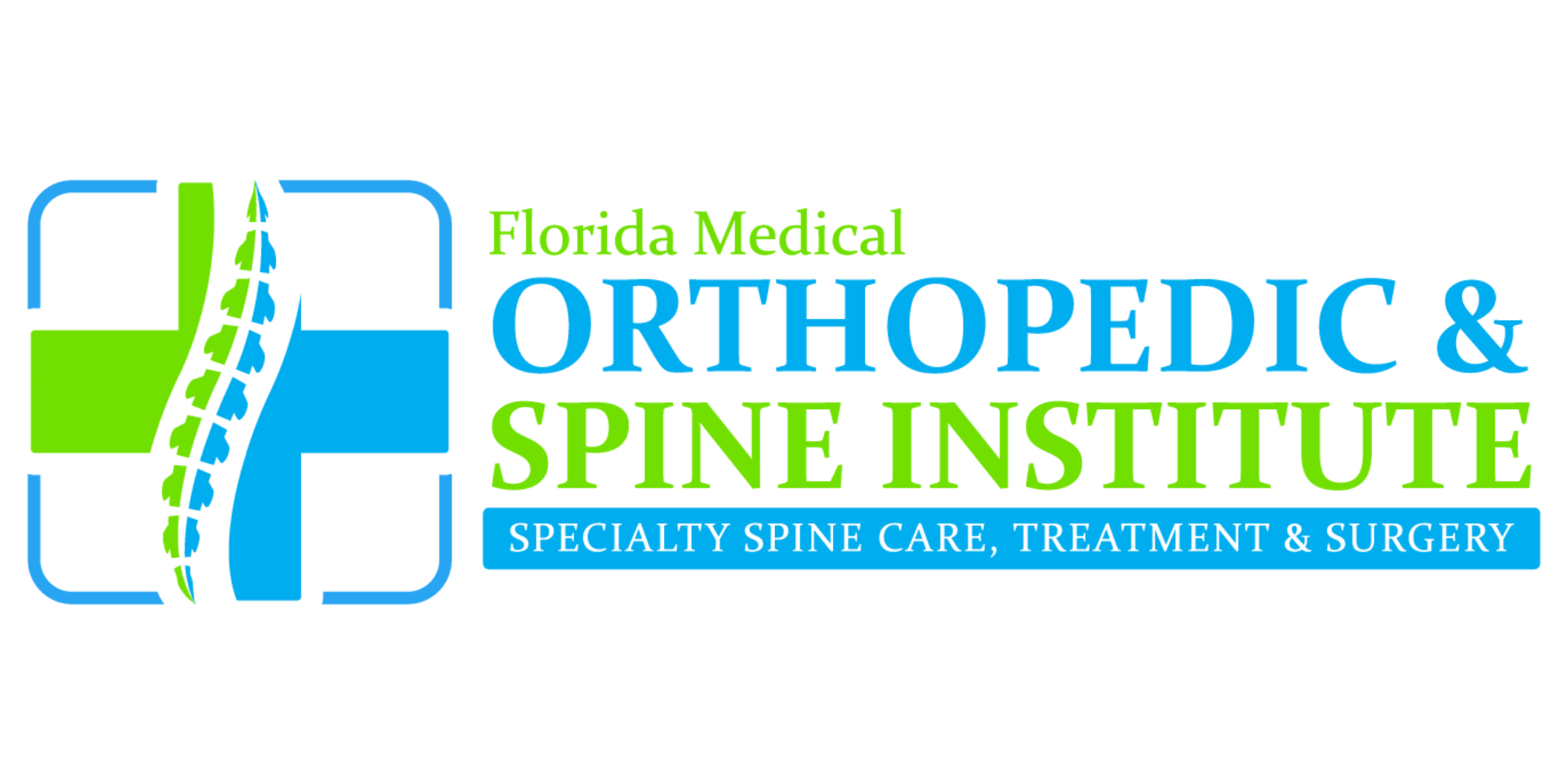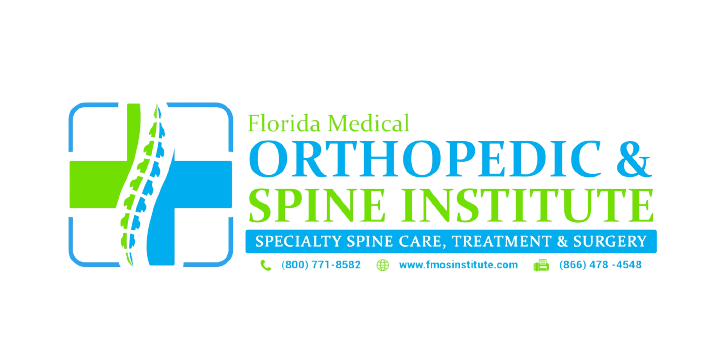Top 5 Reasons to Consult a Personal Injury Doctor After an Accident: Your Health Matters!
Experiencing an accident can be a life-altering event, leaving not only physical injuries but emotional scars as well. You might feel overwhelmed, confused, and unsure about the next steps, but one decision can set you on the path to recovery—consulting a personal injury doctor. Many people overlook the importance of seeking medical attention right after an incident, thinking they can cope on their own. However, even minor injuries can turn into serious health issues if left untreated. In this article, we’ll explore the top five reasons why visiting a personal injury doctor should be your priority after an accident. From ensuring proper diagnosis to safeguarding your legal rights, your health matters more than ever during this tumultuous time. Don’t underestimate the impact of professional medical care; read on to discover why these consultations are essential for your recovery.
Understanding the Role of a Personal Injury Doctor
A personal injury doctor plays a crucial role in your recovery and legal claim. Beyond treating injuries, they meticulously document your medical condition, linking it directly to the accident. This documentation, including diagnoses, treatment plans, and prognoses, is vital for building a strong case and ensuring you receive the compensation you deserve. They understand the nuances of personal injury cases, working closely with attorneys to provide expert medical testimony and support.
The Importance of Early Medical Evaluation
In the aftermath of a personal injury, an early medical evaluation is paramount. It's not just about addressing immediate pain; it's about establishing a clear, documented link between the accident and your injuries. This initial evaluation serves several critical purposes:
- Accurate Diagnosis: Hidden injuries, like internal bleeding or subtle neurological damage, can go unnoticed without a professional assessment. Early diagnosis allows for timely intervention, preventing complications.
- Medical Records: These records are the cornerstone of your personal injury claim. They detail the nature and extent of your injuries, the necessary treatments, and the projected recovery timeline.
- Establishing Causation: A prompt evaluation strengthens the connection between the accident and your injuries, making it harder for opposing parties to dispute the cause.
- Preventing Further Complications: Delaying treatment can exacerbate injuries and prolong recovery. Early intervention minimizes the risk of long-term health issues.
- Legal Protection: A thorough medical evaluation provides crucial evidence for your attorney, ensuring you receive fair compensation for medical expenses, lost wages, and pain and suffering.
Don't underestimate the power of an early medical evaluation. It's an investment in your health and your legal rights.
Common Injuries Sustained in Accidents
Car accidents can result in a wide range of injuries, from minor to life-threatening. Here's a breakdown of some of the most common types:
Common Physical Injuries:
- Whiplash:This neck injury occurs due to the sudden back-and-forth movement of the head, straining the neck's muscles and ligaments.
- Traumatic Brain Injuries (TBIs):These injuries range from mild concussions to severe brain damage, often caused by impact to the head.
- Fractures and Broken Bones:Commonly affecting arms, legs, ribs, and collarbones, these injuries result from the force of impact.
- Spinal Cord Injuries:These severe injuries can lead to partial or complete paralysis.
- Internal Injuries:Damage to internal organs like the spleen, liver, or kidneys, often with hidden symptoms.
- Cuts, Lacerations, and Bruises:Caused by broken glass, debris, or impact with the vehicle's interior.
- Soft Tissue Injuries:Sprains, strains, and contusions affecting muscles, ligaments, and tendons.
Beyond Physical Injuries:
- Emotional Trauma and PTSD:Car accidents can cause significant emotional distress, leading to anxiety, flashbacks, and post-traumatic stress disorder.
Factors that Influence injury severity:
- The speed of the vehicles involved.
- The type of collision (head-on, rear-end, side-impact).
- The use of safety restraints (seat belts, airbags).
- The size and weight of the vehicles.
It's crucial to seek medical attention after any car accident, even if you feel fine, as some injuries may not present immediate symptoms
How a Personal Injury Doctor Can Document Your Injuries
A personal injury doctor plays a vital role in documenting injuries, which is crucial for both medical recovery and legal claims. Here's how they contribute to this process:
Key Aspects of Documentation:
- Detailed Medical Records:Doctors meticulously record all examinations, diagnoses, treatments, and prognoses.
- These records include information about the nature and extent of injuries, pain levels, and any limitations.
- They also document the patient's medical history, which can be essential in establishing a baseline and demonstrating how the accident impacted their health.
- Diagnostic Testing:Doctors utilize various diagnostic tools, such as X-rays, MRIs, and CT scans, to provide objective evidence of injuries.
- The results of these tests are documented and become part of the medical record.
- Establishing Causation:Personal injury doctors work to establish a clear link between the accident and the patient's injuries.
- They document the timeline of events and the onset of symptoms, helping to demonstrate that the injuries were a direct result of the incident.
- Treatment Plans and Progress Notes:Doctors create detailed treatment plans and document the patient's progress throughout the recovery process.
- These notes include information about medications, therapies, and any changes in the patient's condition.
- Expert Opinions:In complex cases, personal injury doctors may provide expert opinions on the severity of injuries, the need for future medical care, and the impact on the patient's quality of life.
- Accurate and Objective Reporting:It is very important that the doctor uses clear and objective language, to avoid subjective terms, and to stay with factual observations.
Why This Documentation Matters:
- Legal Claims: Medical records serve as crucial evidence in personal injury claims, helping to establish the extent of damages and the need for compensation.
- Insurance Purposes: Insurance companies rely on medical documentation to assess claims and determine appropriate settlements.
- Medical Treatment: Accurate documentation ensures continuity of care and helps healthcare providers track the patient's progress.
In essence, a personal injury doctor's thorough documentation provides a comprehensive record of the patient's injuries, which is essential for both medical and legal purposes.
The Connection Between Medical Treatment and Legal Claims
The connection between medical treatment and legal claims in personal injury cases is deeply intertwined. Here's a breakdown of that crucial relationship:
How Medical Treatment Strengthens Legal Claims:
- Establishing Proof of Injury:Medical records provide concrete evidence of the existence and severity of injuries.
- Diagnostic tests (X-rays, MRIs, etc.) offer objective proof of physical damage.
- Demonstrating Causation:Medical documentation helps establish a direct link between the accident and the resulting injuries.
- Timely medical evaluations strengthen the argument that injuries were a direct result of the incident.
- Determining the Extent of Damages:Medical bills and records quantify the financial costs of treatment.
- Doctors' prognoses help estimate future medical expenses.
- Documentation of pain and suffering, and loss of quality of life, contribute to non-economic damages.
- Supporting Legal Negotiations and Litigation:Medical records are essential for negotiating settlements with insurance companies.
- In court, medical testimony from doctors can be crucial in proving the extent of injuries and the need for compensation.
- Maintaining Credibility:Consistant and thorough medical treatment shows that the injured party is serious about their recovery, and that their injuries are real.
- Gaps in treatment can be used by opposing council to weaken a case, by implying that the injuries were not as severe as claimed.
Key Medical Documentation Used in Legal Claims:
- Medical Records: Detailed accounts of diagnoses, treatments, and prognoses.
- Medical Bills: Documentation of expenses incurred for medical care.
- Diagnostic Test Results: Objective evidence of injuries.
- Doctor's Reports: Expert opinions on the severity of injuries and the need for future care.
In essence, medical treatment provides the factual foundation upon which a strong personal injury claim is built. It's not just about healing; it's about creating a comprehensive record that protects your legal rights.
Benefits of Specialized Care for Accident Victims
Specialized care for accident victims offers numerous benefits that contribute to a more effective and comprehensive recovery. Here's a breakdown of key advantages:
Enhanced Diagnosis and Treatment:
- Expertise in Accident-Related Injuries:Specialized doctors, particularly those with experience in personal injury cases, possess a deep understanding of the unique injury patterns associated with accidents. This allows them to identify and treat injuries that general practitioners might overlook.
- Advanced Diagnostic Capabilities:These specialists often have access to advanced diagnostic tools and technologies, enabling them to accurately assess the extent of injuries and identify hidden conditions.
- Tailored Treatment Plans:Specialized care involves creating individualized treatment plans that address the specific needs of each accident victim, promoting optimal recovery.
Improved Recovery Outcomes:
- Minimizing Long-Term Complications:Early and specialized intervention helps prevent injuries from worsening and developing into chronic conditions.
- Faster and More Effective Rehabilitation:Specialized rehabilitation programs, such as physical therapy and chiropractic care, can help accident victims regain lost function and mobility more efficiently.
- Comprehensive Care:Specialized care often encompasses a multidisciplinary approach, addressing both physical and emotional trauma.
Strengthened Legal Claims:
- Accurate and Detailed Medical Records:Specialized doctors meticulously document injuries and treatments, providing crucial evidence for personal injury claims.
- Establishing Causation:These doctors understand the importance of establishing a clear link between the accident and the resulting injuries, which is essential for legal purposes.
- Expert Medical Testimony:In legal proceedings, specialized doctors can provide expert testimony that supports the victim's case.
Addressing Emotional Trauma:
- Recognizing Psychological Impacts:Accident victims often experience emotional trauma, such as PTSD, anxiety, and depression. Specialized care includes addressing these psychological impacts.
- Providing Access to Mental Health Resources:Specialized care providers can connect victims with mental health professionals who can provide appropriate support and treatment.
In essence, specialized care for accident victims provides a holistic approach to recovery, addressing both physical and emotional needs while also supporting legal claims.
How to Choose the Right Personal Injury Doctor
Choosing the right personal injury doctor is crucial for both your physical recovery and the strength of your legal claim. Here's a guide to help you make an informed decision:
Key Considerations:
- Experience with Personal Injury Cases:Look for a doctor who has experience treating patients involved in accidents. They understand the specific documentation and reporting requirements for legal claims.
- Ask about their familiarity with providing medical records and expert testimony.
- Specialized Expertise:Depending on your injuries, you may need a specialist, such as an orthopedist, neurologist, or chiropractor.
- Ensure the doctor has the necessary expertise to address your specific injuries.
- Comprehensive Documentation:A good personal injury doctor will meticulously document your injuries, treatments, and prognoses.
- They should be detail-oriented and understand the importance of clear and accurate medical records.
- Network of Professionals:Some doctors work closely with attorneys and other healthcare professionals involved in personal injury cases.
- This network can streamline the process and ensure seamless communication.
- Communication and Empathy:Choose a doctor who communicates effectively and listens to your concerns.
- A doctor who shows empathy and understanding can make the recovery process less stressful.
- Reputation and Reviews:Research the doctor's reputation online and read reviews from other patients.
- Ask your attorney or other healthcare professionals for recommendations.
- Availability and Accessibility:Ensure the doctor's office is conveniently located and that they have available appointments.
- Consider factors such as office hours, appointment scheduling, and communication methods.
- Medical Liens:In some cases, especially when the injured party does not have medical insurance, a doctor will work on a medical lien. This means that the doctor will be paid from the settlement of the case. Make sure that you understand the terms of any medical lien.
- Honesty and Objectivity:The doctor should be honest about your injuries and provide objective medical assessments.
- They should prioritize your health and well-being.
Steps to Take:
- Consult with Your Attorney:Your attorney can provide recommendations for qualified personal injury doctors in your area.
- Research Online:Search for doctors specializing in personal injury care and read reviews.
- Schedule Consultations:Schedule consultations with a few doctors to discuss your case and ask questions.
- Verify Credentials:Ensure the doctor is licensed and board-certified.
- Trust Your Instincts:Choose a doctor you feel comfortable with and who you trust to provide quality care.
By carefully considering these factors, you can find a personal injury doctor who will provide excellent medical care and support your legal claim.
Frequently Asked Questions About Personal Injury Medical Care
Here are some frequently asked questions about personal injury medical care, with answers to help you navigate this process:
Q: Why should I see a doctor even if I feel okay after an accident?
A: Many injuries, like whiplash, internal bleeding, or concussions, may not present immediate symptoms. Seeking prompt medical attention establishes a record of your injuries and prevents potential complications.
Q: What type of doctor should I see after a personal injury?
A: The type of doctor depends on your injuries. You may need a primary care physician, orthopedist, neurologist, chiropractor, or other specialists. Your attorney or a medical referral service can help you find appropriate doctors.
Q: How do I find a doctor who understands personal injury cases?
A: Ask your personal injury attorney for recommendations. They often work with doctors experienced in documenting injuries for legal claims.
You can also research doctors online, read reviews, and ask for referrals from friends or family.
Q: What information should I provide to my doctor?
A: Provide a detailed account of the accident, your symptoms, and any medical treatment you've received. Bring any relevant documents, such as police reports or insurance information.
Q: How important are medical records in a personal injury claim?
A: Medical records are crucial. They document your injuries, treatments, and prognoses, serving as evidence to support your claim for compensation.
Q: Can I use my health insurance for personal injury-related medical care?
A: Yes, you can use your health insurance. However, it's important to keep track of all medical expenses, as you may be able to recover these costs in your personal injury claim.
Q: What is a medical lien, and how does it work?
A: A medical lien is an agreement where a doctor agrees to provide treatment with the understanding that they'll be paid from your settlement. This is often used when you don't have health insurance or can't afford upfront medical costs.
Q: How do I handle medical bills while waiting for a settlement?
A: Communicate with your medical providers and explain your situation. Your attorney can also help negotiate with providers or explore options like medical liens.
Q: What if the insurance company wants me to see their doctor?
A: You have the right to choose your own doctor. While you may need to attend independent medical examinations (IMEs) requested by the insurance company, you should also have your own treating physician.
Q: How long should I continue medical treatment?
A: Continue treatment until your doctor releases you or you reach maximum medical improvement (MMI). Stopping treatment prematurely can harm your health and your legal claim.
Q: What if I have pre-existing conditions?
A: Disclose any pre-existing conditions to your doctor. They can help determine how the accident exacerbated those conditions and how it relates to your injuries.
Q: What if I need ongoing care after the settlement?
A: Your attorney can help you seek compensation for future medical expenses, ensuring you have the resources for ongoing care.
Q: How does emotional trauma factor into my medical care and legal claim?
A: Emotional trauma, such as PTSD or anxiety, is a legitimate injury. Seek mental health treatment, and ensure it's documented in your medical records. This can strengthen your legal claim.
Conclusion: Prioritizing Your Health After an Accident
In the aftermath of an accident, prioritizing your health is paramount. It's not just about addressing immediate physical injuries; it's about safeguarding your long-term well-being and ensuring you have the resources to recover fully. Here's a summary of why this is so crucial:
- Immediate Medical Attention is Key: Prompt medical evaluation establishes a clear link between the accident and your injuries, preventing potential complications and providing vital documentation for legal claims.
- Comprehensive Care Matters: A multidisciplinary approach, involving doctors, therapists, and mental health professionals, addresses both physical and emotional trauma, fostering holistic recovery.
- Accurate Documentation is Essential: Detailed medical records serve as the foundation of your personal injury claim, proving the extent of your injuries and supporting your right to compensation.
- Choosing the Right Medical Professionals: Selecting doctors experienced in personal injury cases ensures you receive specialized care and meticulous documentation.
- Your Health and Legal Rights are Intertwined: Seeking appropriate medical treatment not only aids your recovery but also strengthens your legal position, allowing you to pursue fair compensation for medical expenses, lost wages, and pain and suffering.
- Emotional well being must be addressed: Accidents are traumatic, and the mental scars can last just as long as the physical.
By prioritizing your health and seeking appropriate medical care, you take control of your recovery and protect your future. Remember, your well-being is the most important thing, and taking the right steps after an accident will set you on a path to healing and justice.
Contact Us Today
Have a question? Looking for treatment? We’re here to help. Send us a message and we’ll be in touch.
We will get back to you as soon as possible
Please try again later


